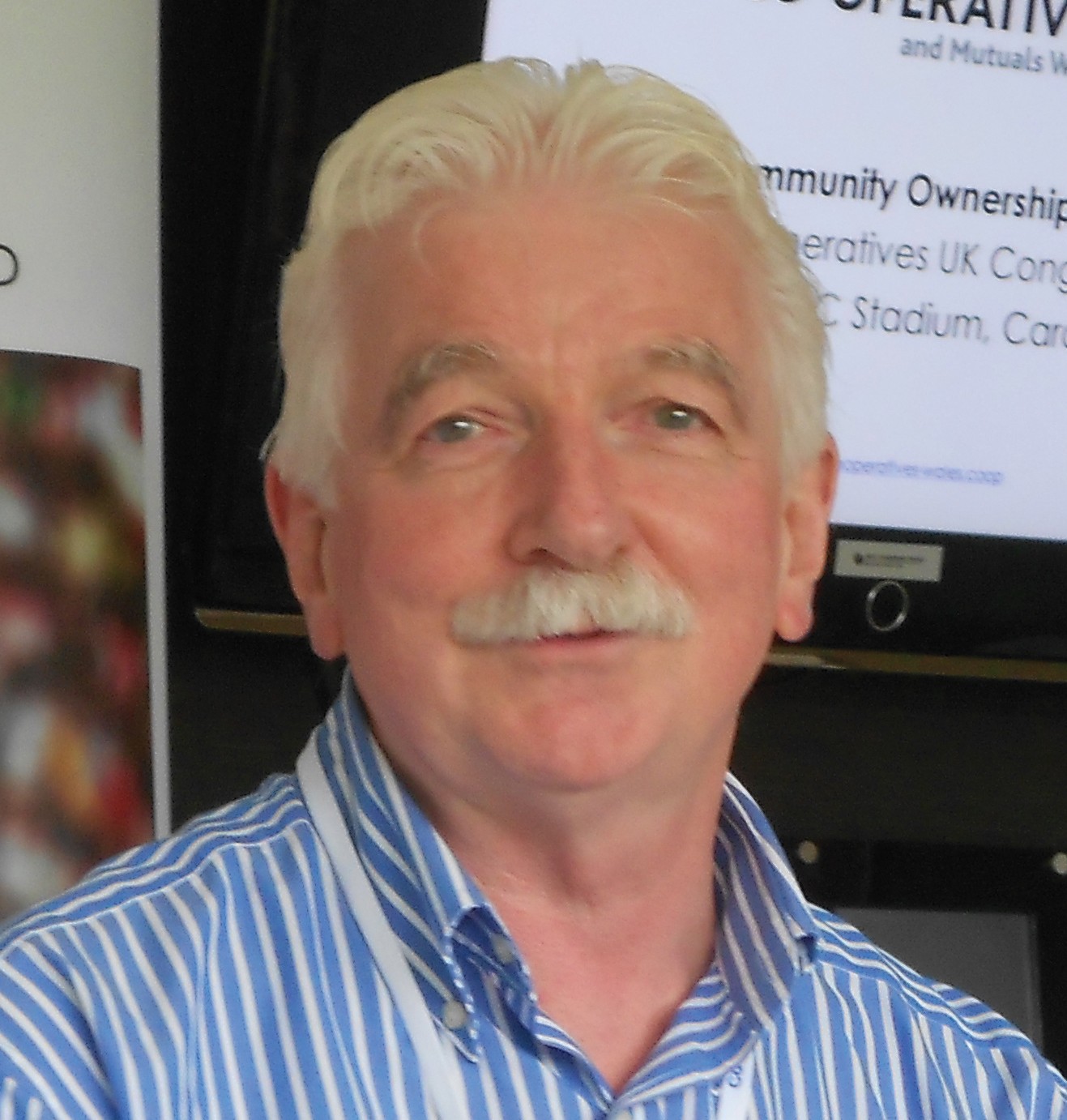Alex Bird is a member of the joint Co-op Party/Labour Party group looking at ways to double the size of the UK co-op sector. His experience in the movement dates back to 1972, when he set up a local community paper, and since then has been involved in co-operative development agencies and as a consultant for organisations including the Co-operative College, Co-operatives UK and the TUC.
How did you become involved in the co-op sector?
I started working in a voluntary capacity for the local community paper in 1972, the Cardiff People’s Paper. We called it a collective back then, but we would call it co-op now. It campaigned on tenants’ rights and against the redevelopment of the city centre, although that has since been redeveloped twice!

What are the highlights of your involvement in co-ops?
I think that’s the 20 years spent setting up and running Fingerprints – which was then Wales’ largest and longest-running worker co-operative, and which reached nine members at its peak. We set it up in 1974 after the experience of trying to find a printer who would take the libel risk (we were in court on one occasion) and turn the job around quickly before the news was out of date.
They were interesting times, sometimes in a Chinese curse sense, especially when interest rates hit 18% in 1992 after Black Wednesday. We also had a policy of printing for anyone from the Labour Party leftwards, and this oft times led to us having to keep customers apart; we managed this in one General Election where we printed for three left candidates in the same constituency without them finding out in advance what the others were saying!
Another highlight was in April 1990 when I inherited the role of chair of the local co-operative development agency, when our chair John Reynolds, the council leader, suffered a heart attack and I, as vice chair, had to step into his place. While I thoroughly enjoyed that position in the heyday of the CDA/CDB movement, his loss put a cloud over my first few months of office, but the rapid expansion of the movement was invigorating, and the feeling we were on a roll got me through it.
Then, in June 2009, I established the UK’s first cross-party group on co-ops at the Welsh Assembly and we worked closely with the groups in Northern Ireland and Scotland, bringing them together twice to share experiences. The Welsh Group is now run by the Wales Co-operative Centre, but sadly, there’s still no English group at Westminster.
What does your current involvement entail?
I’ve reached the stage in my life when it’s time to give back and share my knowledge and experience, so I’ve spent the last few years as a freelance researcher, consultant and development worker working through the consultancy.coop for most of that time, and I’m now concentrating on research and policy work. I’ve worked with colleagues on three reports recently for the Co-operative College, Co-operatives UK and the TUC looking at co-operative solutions for the needs of the precariat. One particularly interesting Welsh government project I’m now working on with colleagues from consultancy.coop and the Musicians Union, is a future structure for music teaching in Wales, and another is being part of the team working to establish Banc Cymru, a co-op bank for Wales.
If you could make change to improve the co-op movement’s effectiveness, what would it be?
As a movement we’re not very joined up. In the UK we’re dominated by consumer co-ops and they tend to operate in a different way from worker co-ops. In part the ideology is different, as they’re working for different cohorts of membership, and although both are tied together by the Principles, their mindsets are very different. The relation between a worker member and their worker co-op is more fundamental than between a consumer and their co-op shop, but the commonalities are surely much greater than the differences and we mustn’t allow that to divide us.
I discovered on a visit to Mondragon [in the Basque region of Spain] in 2012 that a proportion of all its co-ops’ profits are pooled within the Mondragon Co-operative Corporation and are used to support and finance the creation of new and expanding co-ops. We have no such system here, so a proportion of the surpluses from our big co-ops are generously gifted to good causes, but very little is invested back into our movement. I think changing that could make a huge difference. The Solid Fund for worker co-ops has demonstrated how effective a small amount of money from many people can be when pooled together, as has the Community Shares movement which has raised countless millions to take collective ownership of a small part of our economy.
Where would you like to see the co-op movement in ten years’ time?
I’m part of the joint Co-op Party/Labour Party group working out how to double the size of our sector in the first term of a new Labour government, so that’s an obvious start. I’d also like to see us learn from the past, in particular the days of the Industrial Common Ownership Act, but I’d also like to see us break out into new and untapped areas.
Digital tools for co-operation are a great opportunity for the movement, but to roll them out at scale requires large amounts of capital, and we have still to work out how to provide a co-operative form of venture capital. I know lots of people are thinking about this, and I don’t think we’re far from a solution, and although we’re not quite there yet, I’m optimistic we’ll make it in this next decade.

